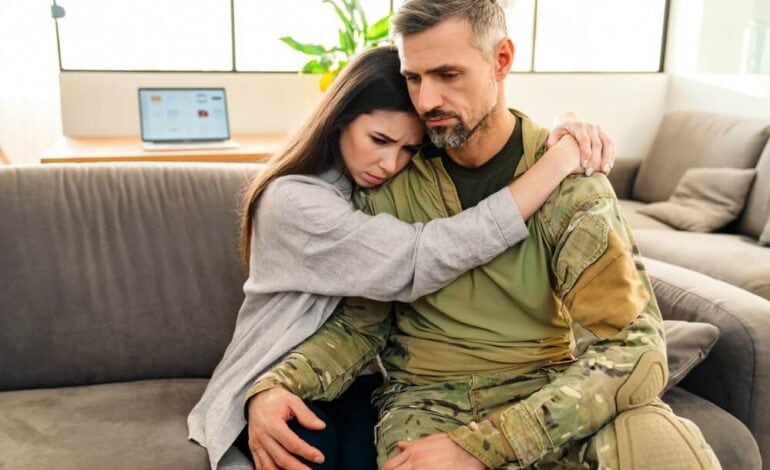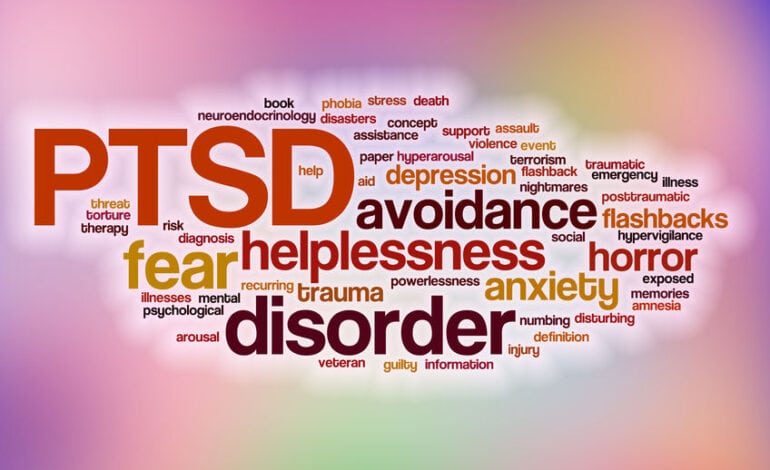PTSD Awareness Month
June is National Post Traumatic Stress Awareness Month, a time dedicated to raise public awareness about issues related to PTSD and reduce the stigma associated with PTSD. PTSD is often associated with war soldiers and veterans and although many men and women in combat are at risk of PTSD, this mental health disorder can affect anyone regardless of age, gender, or military status. PTSD affects approximately 3.5 percent of adults in the United States every year, and an estimated one in 11 individuals will be diagnosed with PTSD in their lifetime. Women are twice as likely as men to have PTSD.
Defining PTSD
PTSD is a mental health disorder that involves severe anxiety, flashbacks, fear, and negative thoughts after experiencing or witnessing a traumatic life-threatening event. The individual can directly experience this traumatic life-threatening event or they can be a witness to such event. Individuals with PTSD will have reminders of the event, will feel stressed, and will develop sleep problems. Examples of a traumatic event include military combat, a natural disaster, a sexual assault, physical violence, traumatic accidents, or individuals in refugee or concentration camps.
Signs and Symptoms of PTSD
Posttraumatic stress disorder is a mental illness that is diagnosed when severe stress symptoms exist for at least one month following exposure to a life-threatening traumatic event. These signs and symptoms must cause impairment in daily functioning and are not attributable to substance abuse or exposure through media such as television and movies. Individuals must experience symptoms in each of the following categories:
- Persistent re-experiencing of the traumatic event via dreams, perceptions, images, hallucinations, or flashbacks.
- Avoidance of triggers such as people, places, thoughts, and feelings that were associated with the traumatic event.
- Feelings of detachment, negative self-esteem, negative emotional states, and the inability to remember associated events. The individual will often feel numb.
- Marked changes in arousal and activity such as irritable behavior, hyper-vigilance, increased arousal, reckless behavior, sleep disturbance, and concentration problems.
Acute stress disorder
Acute stress disorder is similar to PTSD with the exception of the duration of signs and symptoms. The signs and symptoms of acute stress disorder last for one month in duration. If they continue longer for one month, then you or your loved one most likely developed PTSD.
How to help your loved one with PTSD
You can take steps to help a loved one cope with stress brought on by a traumatic event, whether it’s the result of an accident, violence of any kind, such as an assault; verbal, physical, domestic, or sexual abuse; or military combat, or another type of trauma. Often times we may want to help and support our loved ones but we may not know what to say or how to act. We may have good intentions but are fearful of saying the wrong thing to potentially cause more hurt. One of the best ways you can help your loved one who has PTSD is by being a supportive listener without trying to “fix” anything. Before offering help to your loved one, it is important to keep in mind that surviving with traumatic stress is a continual process. Some days are better than others and there is no specific time for recovery. Some individuals may improve in six months whereas other individuals may live with their signs and symptoms for years. You may continue to have many conversations with your loved one over weeks or months as he or she processes the traumatic experience during or after a period of professional care from a therapist or physician.
- Be ready and willing to listen, but don’t push: Tell your loved one that you want to listen. Offer your listening ear, without judgment but be understanding if they do not feel like talking. Allow them to share their feelings, thoughts, and experiences at their own pace. Listening also means that you do not make assumptions about how they are feeling or what they are experiencing and it also entails allowing them to be upset with what has happened in their life.
- Choose an appropriate time to talk but do not pressure them: If your loved one comes to you asking to talk, make sure you have the time and are in the right headspace. If you feel stressed or rushed, set up another time to be there for them or do something that helps you clear your mind.
- Educate yourself about PTSD: Posttraumatic stress disorder goes beyond what the media portrays it to be. If you want to understand what your loved one is experiencing, research and read from reputable sources such as National Institute of Mental Health (NIMH): PTSD, American Psychiatric Association (APA), Mayo Clinic, U.S. Department of Veterans Affairs National Center for PTSD, PTSD Foundation of America
- Manage your own stress and adopt ways to take care of yourself: Watching a loved one experience signs and symptoms of PTSD can be stressful and can take a toll on your own mind, body, and personal life. In order for you to be a good friend and support system for your loved one, you must practice self-care and self-awareness to ensure that you are in a good place, both mentally and physically.
- Offer to go to therapy appointments or doctor visits: Going to doctors and therapy appointments alone can be stressful, especially if your loved one is not used to seeing a therapist or a physician on a regular basis. You can offer to attend these appointments with your loved one, even if it means sitting in the waiting room. Your presence matters and being there for your loved ones shows that you care about them.
- Learn their triggers: Each individual will have a different experience of PTSD, so it might help to talk about what sorts of situations or conversations might trigger flashbacks or difficult feelings. For example, they might be particularly distressed by loud noises, arguments, or particular places. Understanding their triggers could help you to avoid these situations, and feel more prepared when flashbacks happen.
- Plan ahead for difficult times: If your loved one is having a good day, it may be wise to discuss with them how you can help if a crisis occurs. You could encourage them to map out a crisis plan, discuss red flag symptoms and learn their triggers so that you can understand how to cope with them.
- Do “normal” activities with your loved one: PTSD is stressful but not every day or every time you hang out with them, should you focus on their past trauma. Spend quality time with them and do everyday things such as going to lunch, watching a movie, going for a hike or a bike ride, or cooking dinner. Their trauma is important but the goal is to help them cope with their trauma and engaging in healthy, normal daily activities can do this.
“When we feel weak, we drop our heads on the shoulders of others. Don’t get mad when someone does that. Be honored. For that person trusted you enough to, even if subtly, ask you for help.”
― Lori Goodwin




